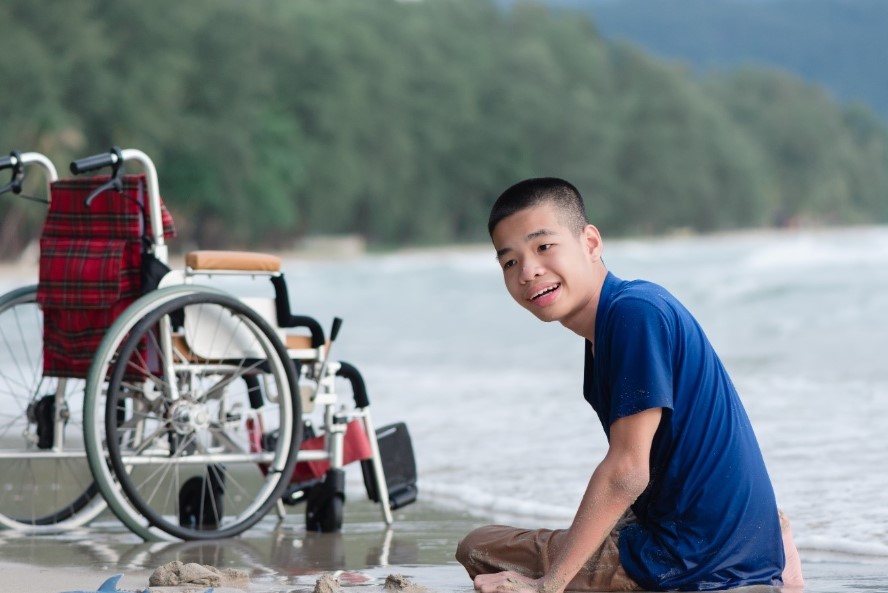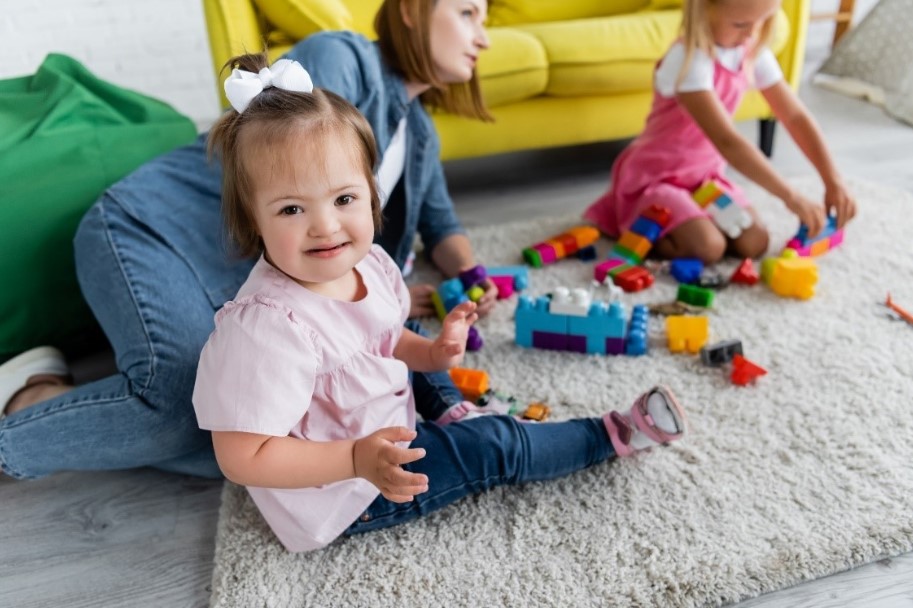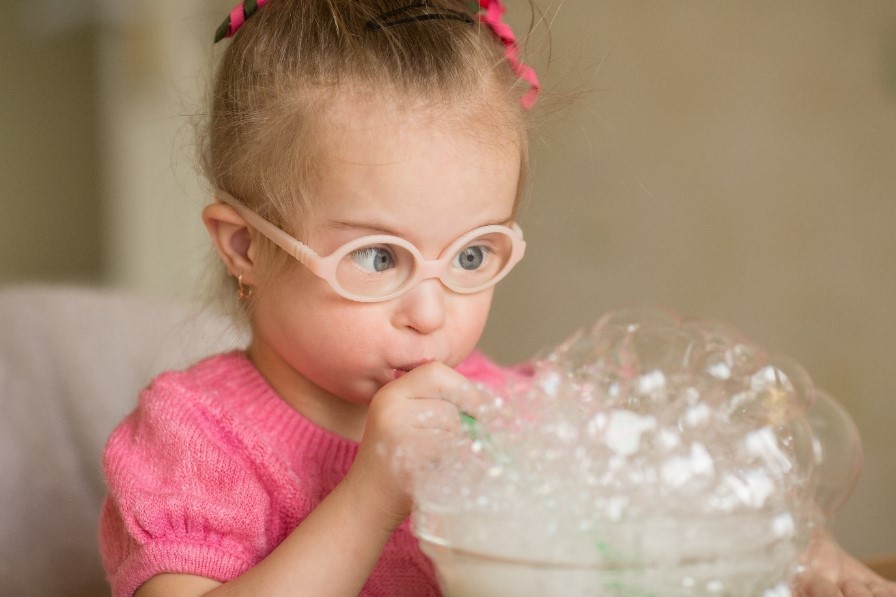The Benefits of Early Childhood Intervention Programs in Australia
In the early years of childhood, kids can seem like they are growing before your very eyes. Behind the scenes, they are also developing patterns that can have an impact for the rest of their lives. For example, they are learning movement strategies, food preferences and emotional skills that can last a lifetime.
Building healthy patterns in this crucial period can help kids to have better lifelong health and wellbeing. For children with disability and developmental delay, the benefits of early childhood intervention supports include promoting healthy development, functional capacity and independence.
What is early childhood intervention?
Early childhood intervention (ECI) is a term used to describe learning programs, therapies and other supports for young children who have disability or developmental delay.
During early childhood, children are undergoing rapid changes. Their brains and bodies are primed for growth, learning and skill development. The early childhood intervention approach taps into this time to help children reach their full potential.
The NDIS call this the early childhood approach. The NDIS early childhood approach enables children younger than nine with disability, and kids younger than six with developmental delay, to access appropriate and timely support to help them reach their goals.
What are the benefits of early childhood intervention?
A high-quality early childhood intervention program has benefits for both children with disability or developmental delay and their families and caregivers.
Benefits of early childhood intervention for children
If your child has a disability or developmental delay, ECI can help to give them the best start in life.
High quality early childhood support services are designed to optimise outcomes in various areas. ECI does this by helping kids develop skills to:
- move their bodies and meet motor milestones
- communicate and socialise with others
- understand and manage their emotions
- think, learn, make decisions, and solve problems
- be as independent as possible with everyday activities
- participate in their families and communities
- get ready for school
- keep up with their peers.
Starting ECI supports as early as possible will help your child achieve the best possible outcomes.
Benefits of early childhood intervention for your family
Early childhood is also an important time for families and caregivers. ECI supports can help you to:
- discover your child’s strengths and interests
- learn how best to support your child
- build capacity to meet your child’s needs
- adjust to having a family member with disability or developmental delay.
Quality early childhood intervention support services will tailor a therapy program to meet the needs of your child and family.
Now, let’s look at some specific ways early childhood intervention can benefit your child – both now and for the rest of their lives.
How early childhood intervention promotes healthy physical function and independence
ECI supports a child physically by promoting healthy growth and development. This gives kids with disability or developmental delay the best chance to have good health and the skills to be as independent as possible.Motor skills development
Motor or movement skills allow children to play, explore, move around in different environments and participate at home and in the community. Early intervention physiotherapy can help to improve motor function and prevent complications associated with movement difficulties.
Paediatric physiotherapy early interventions might focus on:
- reaching developmental milestones such as rolling, sitting and walking
- enhancing fine and gross motor skills
- improving functional mobility
- improving posture, flexibility, balance and coordination.
Independence and daily living skills
In addition to addressing motor challenges, allied health supports such as paediatric physiotherapy, empowering children to develop independence in daily activities. For example, they can support the development of skills needed to:
- get dressed
- tie shoelaces
- use a knife, fork and spoon
- get on and off the toilet
- move around (eg walking or using a mobility aid such as a wheelchair)
climb stairs.
Prevention of secondary complications
Early intervention physiotherapy plays a vital role in preventing secondary complications associated with developmental delays or disabilities. A proactive approach can help to prevent issues such as:
- muscle weakness
- contractures (muscle shortening)
- joint or bone deformities
- mobility limitations
- breathing problems.
Keeping up with peers
For many children and families, an important goal is being able to keep up with peers in social, school, and community activities. Early intervention therapies can help kids reach this goal by supporting them to:
- reach motor milestones – such as sitting, crawling and walking
- develop fine motor skills – such as the ability to use a pencil or pair of scissors
- develop sports-specific skills – such as the ability to kick, throw and catch a ball.
Physical fitness
Regular physical activity is integral to a child’s health and development. Exercise interventions not only enhance physical fitness but also contribute to improved mood and better sleep. Regular physical activity also helps kids to focus, learn and remember.
ECI exercise physiology supports can improve children’s health and wellbeing by supporting them to:
- find physical activities they enjoy taking part in
- develop motor skills and coordination
- have better balance, strength, and flexibility
- improve their mobility
- develop the skills they need for specific sports
- get fitter and healthier
- reach and stay at a healthy weight for their age.
Nutritional support
- food allergies or intolerances – such as lactose or gluten intolerance
- failure to thrive (also known as faltering growth or slow growth)
- fussy eating and problem feeding
- poor appetite
- mealtime challenges
- nutrient deficiencies – such as iron deficiency
- gut conditions – such as coeliac disease, irritable bowel syndrome, and constipation
- genetic syndromes that affect feeding – such as Prader Willi syndrome
- enteral or tube feeding
- disordered eating.
How early childhood intervention supports cognitive development
ECI supports a child’s cognitive development by helping them develop skills to learn, explore, think, remember, and solve problems.Play with a purpose
Young children mostly learn through play. ECI uses a child’s natural curiosity and desire to play to help them reach cognitive milestones. The opportunity to play with a therapist or caregiver can encourage the development of skills needed for problem-solving, self-control, communication and socialisation. This helps to lay foundations for a child’s future learning and academic success.
Harnessing brain plasticity
Children’s brains are remarkably plastic, which means they are highly able to adapt and change in response to experiences. Early intervention programs tap into this plasticity to foster optimal development of nerve cells and connections. This helps to support the development of cognitive skills such as attention, memory, and problem-solving.
Language development
Early interventions can contribute significantly to language development. Good communication is essential for success in other areas, such as learning and forming friendships. Speech and language therapy can help children learn to:
- communicate effectively with others
- develop skills needed at school – such as reading, writing and comprehension
- manage speech issues – such as a lisp or stutter
- express themselves with clarity and confidence.
Socialisation and peer interaction
Cognitive development extends beyond individual skills, encompassing a child’s ability to succeed in social environments. Early intervention programs often include activities that promote socialisation and peer interaction, helping kids to build crucial skills for forming future relationships.
How early childhood intervention promotes emotional wellbeing
In addition to supporting healthy physical and cognitive development, early childhood interventions can promote healthy emotional development.
Emotional regulation
Children with developmental delays or disabilities sometimes find it difficult to regulate their emotions. Early intervention equips kids with tools and strategies to manage emotions effectively, fostering their emotional resilience and wellbeing.
Peer relationships
Social development is a foundational part of early childhood, influencing a child’s ability to form and maintain relationships throughout their life. Intervention programs that facilitate positive peer interactions contribute to the development of social skills and a sense of belonging. For example, children with disability or developmental delay might have opportunities to build social skills by taking part in:
- play groups
- games or sports
- community activities
- fun days and carnivals
- group activities such as art, music or cooking classes.
Building capacity of support networks
Acknowledging the integral role of families, early intervention programs often incorporate family support networks. ECI might include building the capacity of parents and caregivers by giving them the resources and guidance they need to create a supportive environment that fosters their child’s development.
Early intervention therapies with Active Ability
Our team of paediatric physiotherapists, paediatric dietitians and exercise physiologists has extensive experience working with children with disability or developmental delay. We offer early childhood intervention services for children living with autism, neurological conditions, and intellectual disabilities. Our team use fun, evidence-based strategies to help children get the most from therapy and reach their goals. We know that to be most effective, therapy needs to fit around your family life. We can visit you at home, childcare, school, or another convenient local facility. We also want to provide childhood early intervention services that are accessible and affordable, so we do not charge for travel or have a waiting list. Find out more about how we might be able to support your child and family by contacting our friendly team on (02) 9161 5887, hello@activeability.com.au or via our contact form.Get in touch
hidden
Follow Us


